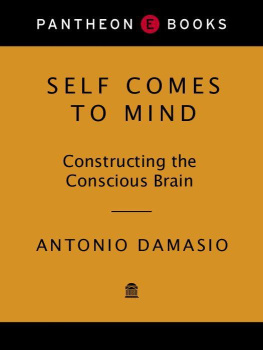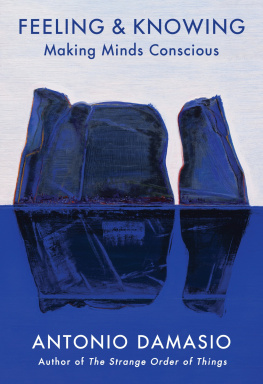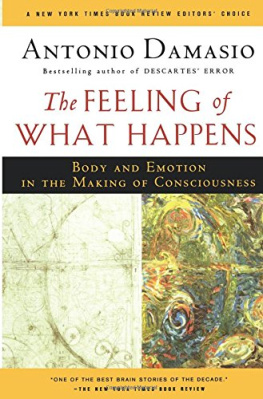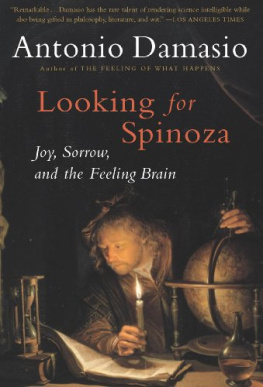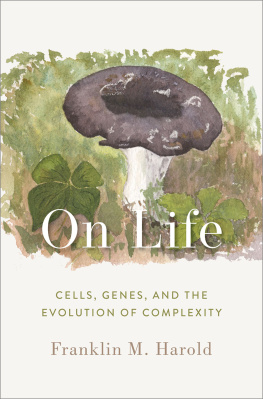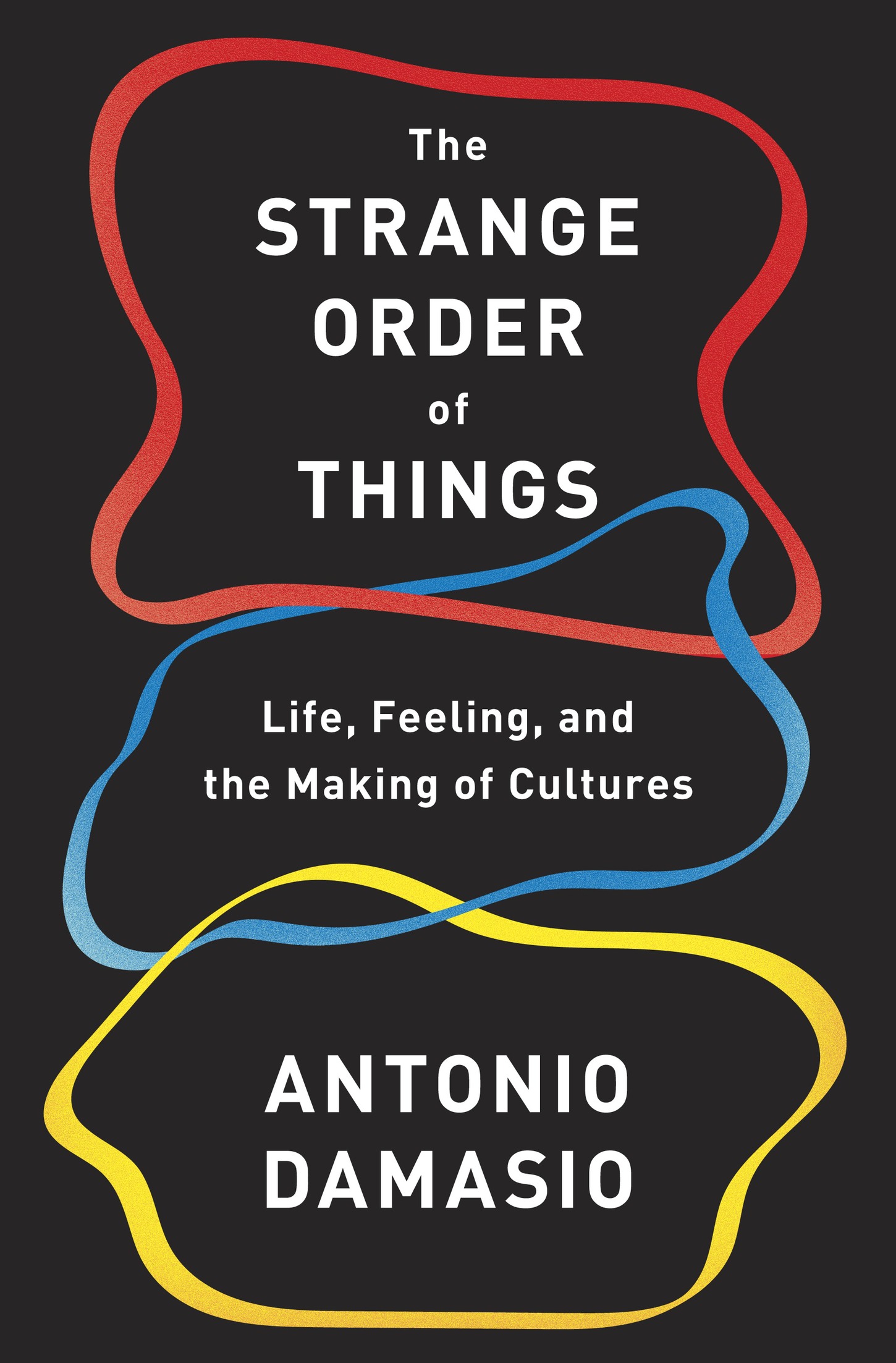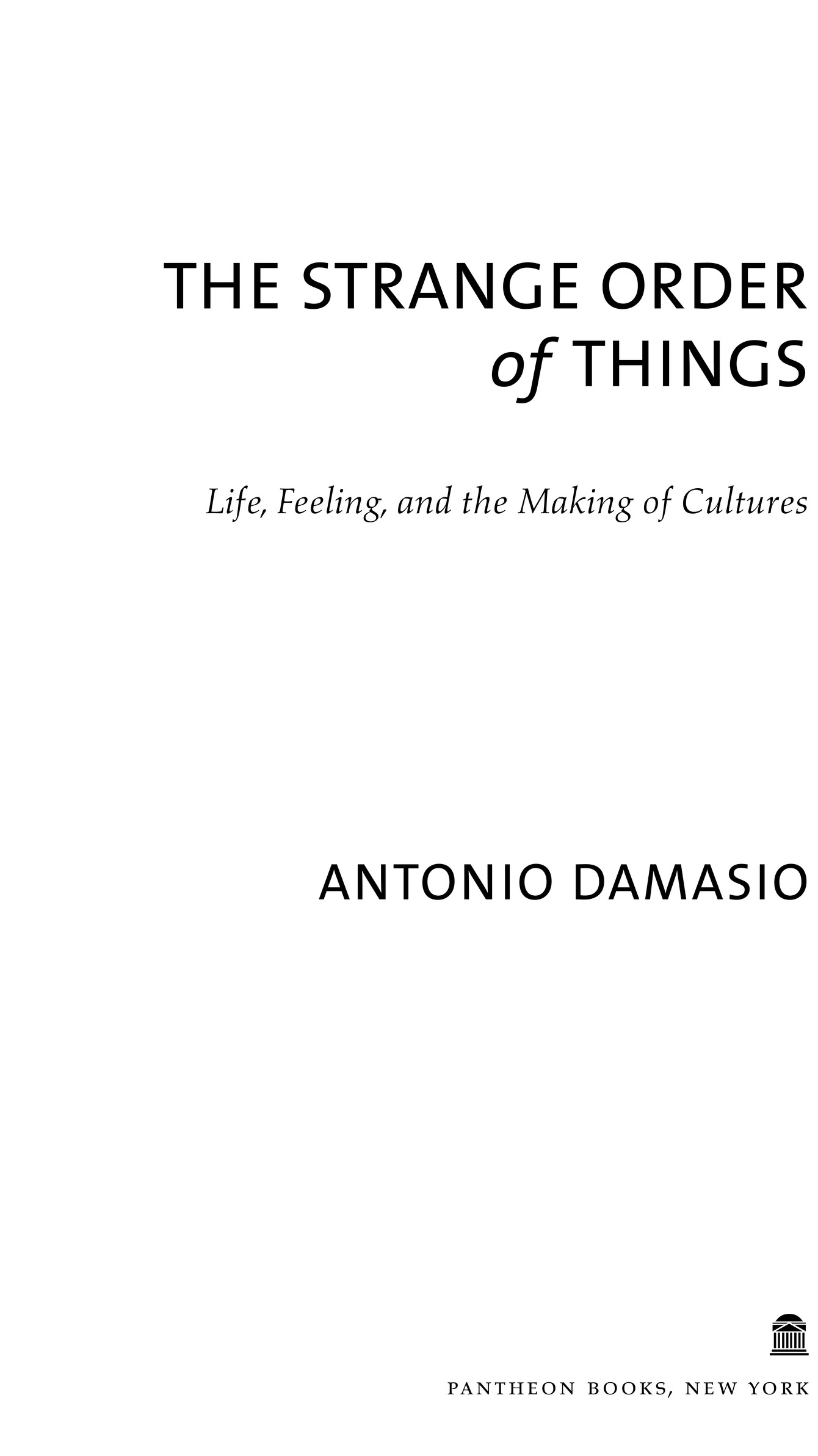1
This book is about one interest and one idea. I have long been intrigued in human affectthe world of emotions and feelingsand have spent many years investigating it: why and how we emote, feel, use feelings to construct our selves; how feelings assist or undermine our best intentions; why and how brains interact with the body to support such functions. I have new facts and interpretations to share on these matters.
As for the idea, it is very simple: feelings have not been given the credit they deserve as motives, monitors, and negotiators of human cultural endeavors. Humans have distinguished themselves from all other beings by creating a spectacular collection of objects, practices, and ideas, collectively known as cultures. The collection includes the arts, philosophical inquiry, moral systems and religious beliefs, justice, governance, economic institutions, and technology and science. Why and how did this process begin? A frequent answer to this question invokes an important faculty of the human mindverbal languagealong with distinctive features such as intense sociality and superior intellect. For those who are biologically inclined the answer also includes natural selection operating at the level of genes. I have no doubt that intellect, sociality, and language have played key roles in the process, and it goes without saying that the organisms capable of cultural invention, along with the specific faculties used in the invention, are present in humans by the grace of natural selection and genetic transmission. The idea is that something else was required to jump-start the saga of human cultures. That something else was a motive. I am referring specifically to feelings, from pain and suffering to well-being and pleasure.
Consider medicine, one of our most significant cultural enterprises. Medicines combination of technology and science began as a response to the pain and suffering caused by diseases of every sort, from physical trauma and infections to cancers, contrasted with the very opposite of pain and suffering: well-being, pleasures, the prospect of thriving. Medicine did not begin as an intellectual sport meant to exercise ones wits over a diagnostic puzzle or a physiological mystery. It began as a consequence of specific feelings of patients and specific feelings of early physicians, including but not limited to the compassion that may be born of empathy. Those motives remain today. No reader will have failed to notice how visits to the dentist and surgical procedures have changed for the better in our own lifetime. The primary motive behind improvements such as efficient anesthetics and precise instrumentation is the management of feelings of discomfort. The activity of engineers and scientists plays a commendable role in this endeavor, but it is a motivated role. The profit motive of the drug and instrumentation industries also plays a significant part because the public does need to reduce its suffering and industries respond to that need. The pursuit of profit is fueled by varied yearnings, a desire for advancement, prestige, even greed, which are none other than feelings. It is not possible to comprehend the intense effort to develop cures for cancers or Alzheimers disease without considering feelings as motives, monitors, and negotiators of the process. Nor is it possible to comprehend, for example, the less intense effort with which Western cultures have pursued cures for malaria in Africa or the management of drug addictions most everywhere without considering the respective web of motivating and inhibiting feelings. Language, sociality, knowledge, and reason are the primary inventors and executors of these complicated processes. But feelings get to motivate them, stay on to check the results, and help negotiate the necessary adjustments.
The idea, in essence, is that cultural activity began and remains deeply embedded in feeling. The favorable and unfavorable interplay of feeling and reason must be acknowledged if we are to understand the conflicts and contradictions of the human condition.
2
How did humans come to be at the same time sufferers, mendicants, celebrants of joy, philanthropists, artists and scientists, saints and criminals, benevolent masters of the earth and monsters intent on destroying it? The answer to this question requires the contributions of historians and sociologists, for certain, as well as those of artists, whose sensibilities often intuit the hidden patterns of the human drama, but the answer also requires the contributions of different branches of biology.
As I considered how feelings could not only drive the first flush of cultures but remain integral to their evolution, I searched for a way to connect human life, as we know it todayequipped with minds, feelings, consciousness, memory, language, complex sociality, and creative intelligencewith early life, as early as 3.8 billion years ago. To establish the connection, I needed to suggest an order and a time line for the development and appearance of these critical faculties in the long history of evolution.
The actual order of appearance of biological structures and faculties that I uncovered violates traditional expectations and is as strange as the book title implies. In the history of life, events did not comply with the conventional notions that we humans have formed for how to build the beautiful instrument I like to call a cultural mind.
Intending to tell a story about the substance and consequences of human feeling, I came to recognize that our ways of thinking about minds and cultures are out of tune with biological reality. When a living organism behaves intelligently and winningly in a social setting, we assume that the behavior results from foresight, deliberation, complexity, all with the help of a nervous system. It is now clear, however, that such behaviors could also have sprung from the bare and spare equipment of a single cell, namely, in a bacterium, at the dawn of the biosphere. Strange is too mild a word to describe this reality.


